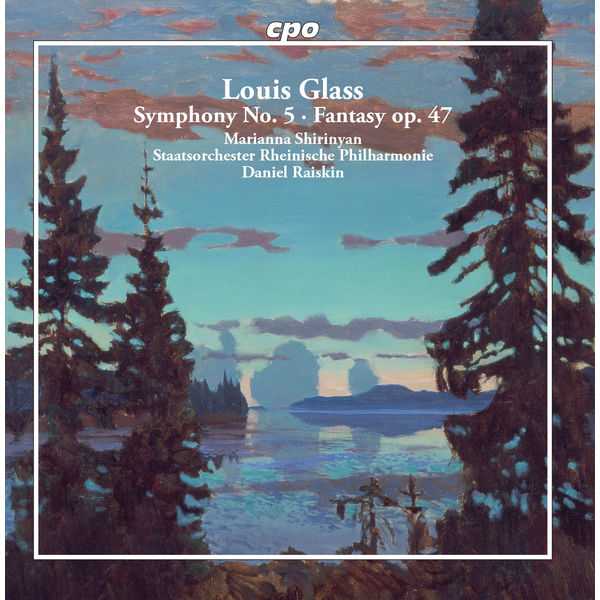
Composer: Louis Christian August Glass
Orchestra: Rhine Philharmonic State Orchestra
Conductor: Daniel Raiskin
Format: FLAC (tracks)
Label: CPO
Catalogue: 7774942
Release: 2017
Size: 312 MB
Recovery: +3%
Scan: yes
Symphony No. 5 in C Major, Op. 57 “Svastika”
01. I. Daily Toil. Allegro energico, ma non troppo
02. II. Rest. Andante tranquillo
03. III. Shades. Presto
04. IV. Dawn. Adagio, ma non troppo
05. Fantasy, Op. 47
Of course, two of the words in this album’s title might confuse the listener: Glass and Svastika. May the reader of these words therefore be informed: the music presented here is not by Philip Glass, but Louis Christian August Glass (1864-1936), a Danish composer, contemporary of Carl Nielsen, and like him a disciple of Niels Gade. Closer to Franck and Bruckner than Nordic language, he turned his attention at the start of the century to modern theosophy – with one of its symbols being no other than the Swastika, which the Nazis later assimilated to symbolise the imaginary Arianism born from their ethnic purity delirium… That’s how a beautiful symbol was tarnished for eternity, a symbol that dates back to the Bronze Age and has been appropriated by countless religions and philosophical movements for millennia. It is obviously this Swastika − the one from Buddhism among others − that Louis Glass wanted to evoke in his Symphony No. 5 “Svastika” from 1919-1920.
Here is a wonderful occasion to rediscover a composer and his work that was completely forgotten for no justified reason, except maybe for the contemporary powerhouse that was Carl Nielsen, who completely dominated the Danish musical scene – even though the two characters only share the time period in which they lived, not their style of music. Glass’ language timidly borrows from late romanticism, but moving towards widely original musical worlds, and a strongly iridescent orchestration. To complete the programme, the album features the Fantasy for piano and orchestra, written before the First World War, still suffused with Brahms and Bruckner influences, but with numerous intriguing modal hues.